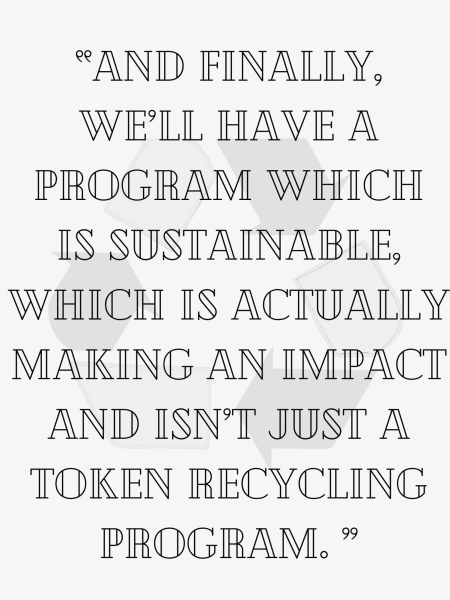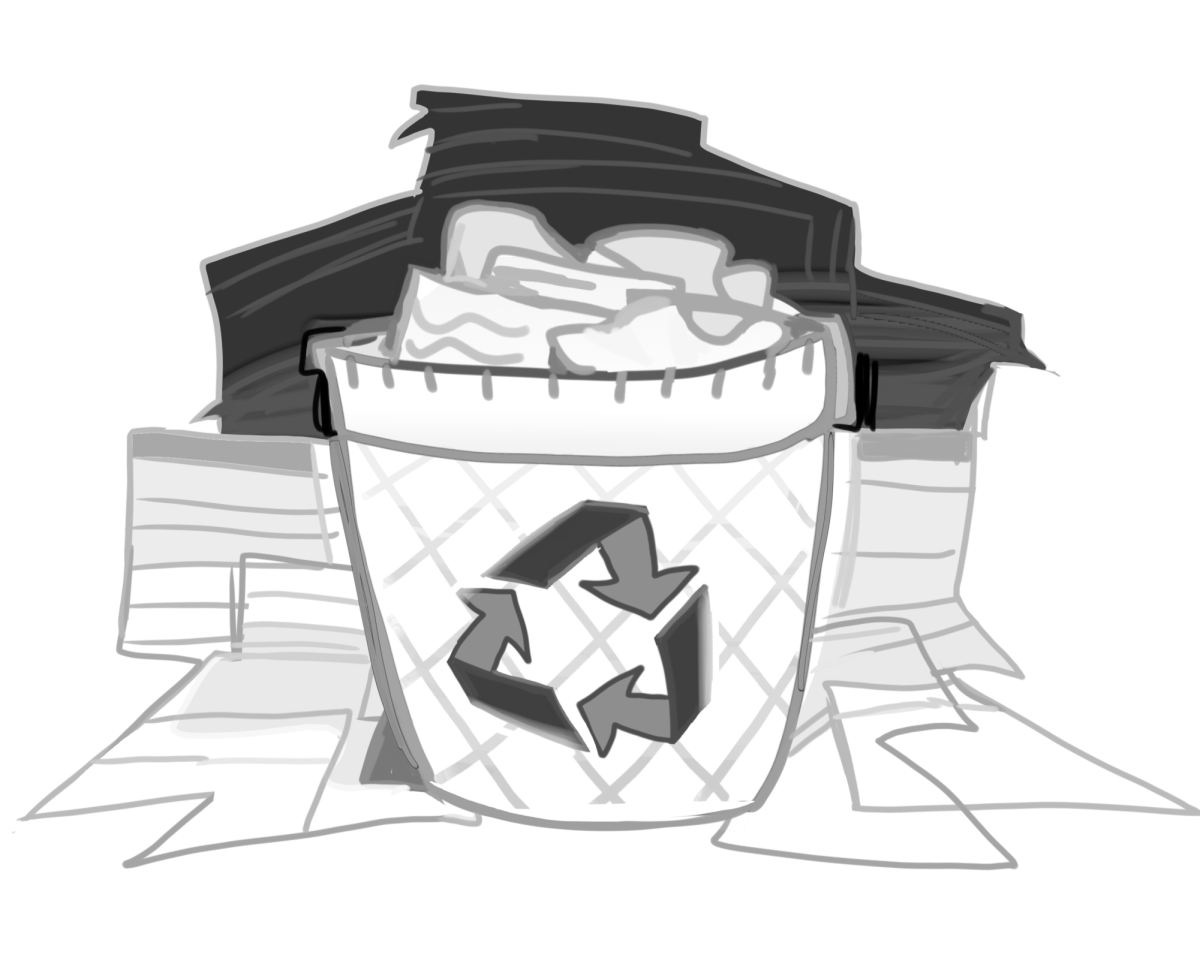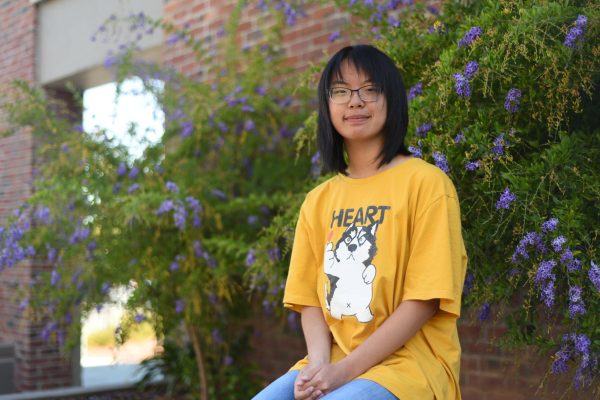FUHSD started a student-run paper recycling program on Feb. 7 as part of a larger initiative, led by the FUHSD Climate Collective, to promote recycling at all five schools in the district. The program aims to recycle all paper in classrooms, raise awareness among the student body for waste management and upgrade custodial practices. Student volunteers and members of the Environmental Club signed up to collect paper waste, make sure it was properly recycled and put up posters in every classroom explaining what can and cannot be recycled.
Planning started in January and continued throughout February, though plans focusing on recycling started back in December. Since then, the FCC has identified a specific focus: paper. In the past, a bottle recycling program was started by MV Environmental Club but didn’t see much success, according to FCC Student Lead Charlotte Zhou. She says that recycling has been an issue within FUHSD for a while as many materials thrown in recycling bins ended up going to the landfill, due to improper disposal from the student body or contamination from other sources.
“A lot of the time, these papers don’t actually get recycled,” Zhou said. “They just get thrown away with the rest because it takes extra effort. By doing this recycling program with the volunteers, we’re guaranteeing that all this paper is going to the right place.“
Physics Teacher and FCC Teacher Lead Sushma Bana agrees, noting that the FCC chose paper as a target specifically because it is easy to sort and dispose of in classrooms. FCC also plans to expand to other materials in the future, though those will be solidified after seeing how this first step pans out. Bana says student involvement is crucial for the program to be effective.
“Everyone has to do their part to make this a success,” Bana said. “So we are starting small with paper recycling, and then the hope is that this will go well, and then the next step, and then the next step. And finally, we’ll have a program which is sustainable, which is actually making an impact and isn’t just a token recycling program. We want something that is sustainable over a longer period of time and actually makes a difference.”

Music Director and former FCC Teacher Lead Amy Young emphasizes the positive effects of recycling paper, pointing out the sheer amount of unrecycled paper that FUHSD goes through every year. For example, at Cupertino High School alone, 2.7 million paper copies were made in one year — none of it recycled.
“Each school site uses something like 150,000 pieces of paper per student, per school year,” Young said. “It was like 2.5 million pieces of paper a year. Huge numbers, and we’re not recycling any of it at this time. So if we can make an effort to recycle the scrap paper from print centers and unused tests and stuff that even hasn’t been touched, that would make a huge impact on the overall paper that gets recycled.”
Student volunteers for the recycling program attended a training meeting, where they were shown where to put papers, how to explain to teachers what they were doing and what posters to put up, before getting to work. Each volunteer was assigned three classrooms to manage. Around 70% to 80% of classrooms are currently covered, according to Zhou.
“We got a lot more volunteers than we expected,” Zhou said. “And I think we’re on a pretty good track to expand this program in the future. We had some partnerships as well. We’re all very confident about this program becoming a big success in the future.”
Young and Bana are also optimistic about the future of this program, and they believe that with it, the school will be able to lower its carbon footprint and general impact on the environment.
“Part of the reason I love FUHSD is that we’re having these kinds of conversations,” said Young. “I think as a school, we will be able to lower our overall footprint because there are millions of pieces of paper a year that we can be trying to take care of more responsibly.”
According to Bana, the effects of the program are not limited to paper recycling. She believes that the program is a huge step forward for raising awareness for environmental sustainability in general, as well as rallying support from the FUHSD community for the upcoming Earth Day event on April 11th. She hopes that the effects of this program do not stop after it formally concludes but instead continue into the future.
“Schools are not just about reading some books, taking some tests and getting a grade,” Bana said. “Schools are about real-life education also. I think this is a really important way that we can bring our schools and our community together to make people more aware of a problem that influences everyone. I don’t think there’s anyone who is unaffected by climate change in some way or the other. So, this is an important initiative to show students that there is a lot of power in collective effort and if we decide to make sustained efforts to improve and change certain things, then it can make a difference.”














